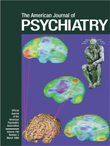ECT Therapy in PTSD
Ms. A was a 35-year-old married woman with a history of PTSD and depression. She reported feeling “on edge,” with a sense of impending doom, since returning from active duty in the Persian Gulf war in 1991. Since then, she has had suicidal thoughts nearly every day. Although she has a family, she feels unable to achieve emotional closeness with others. During the gulf war, she was raped and witnessed numerous atrocities. She has reexperienced these events in the context of nightmares and daytime flashbacks, which are often triggered by certain odors such as diesel fuel and exhaust fumes.In the past, several different pharmacotherapy regimens had been instituted without success including amitriptyline, lorazepam, fluoxetine, and trazodone. Approximately 6 months before admission to our Veterans Administration (VA) hospital, she was placed on a regimen of sertraline (100 mg/day). According to Ms. A, this allowed her to “make it through the day,” but it did nothing to alleviate her emotional numbness and hypervigilance. In the past, she had also been treated with psychotherapy at a VA-sponsored PTSD clinic for women, without success.Recently, Ms. A was admitted to our service because she felt her symptoms had escalated to the point that she was unable to continue living. She agreed to undergo ECT because her previous responses to pharmacotherapy and psychotherapy were inadequate. Ms. A underwent six unilateral ECT treatments, which were administered 3 times per week. All psychotropic medications were discontinued 48 hours before her first treatment. After the third treatment, she reported feeling much better, with significant amelioration of her depression, emotional numbness, and recurrent intrusive thoughts. For the first time in several years, she was able to enjoy life with her family. After the sixth treatment, she was discharged on a regimen of sertraline (100 mg/day).
References
Information & Authors
Information
Published In
History
Authors
Metrics & Citations
Metrics
Citations
Export Citations
If you have the appropriate software installed, you can download article citation data to the citation manager of your choice. Simply select your manager software from the list below and click Download.
For more information or tips please see 'Downloading to a citation manager' in the Help menu.
View Options
View options
PDF/EPUB
View PDF/EPUBGet Access
Login options
Already a subscriber? Access your subscription through your login credentials or your institution for full access to this article.
Personal login Institutional Login Open Athens loginNot a subscriber?
PsychiatryOnline subscription options offer access to the DSM-5-TR® library, books, journals, CME, and patient resources. This all-in-one virtual library provides psychiatrists and mental health professionals with key resources for diagnosis, treatment, research, and professional development.
Need more help? PsychiatryOnline Customer Service may be reached by emailing [email protected] or by calling 800-368-5777 (in the U.S.) or 703-907-7322 (outside the U.S.).

